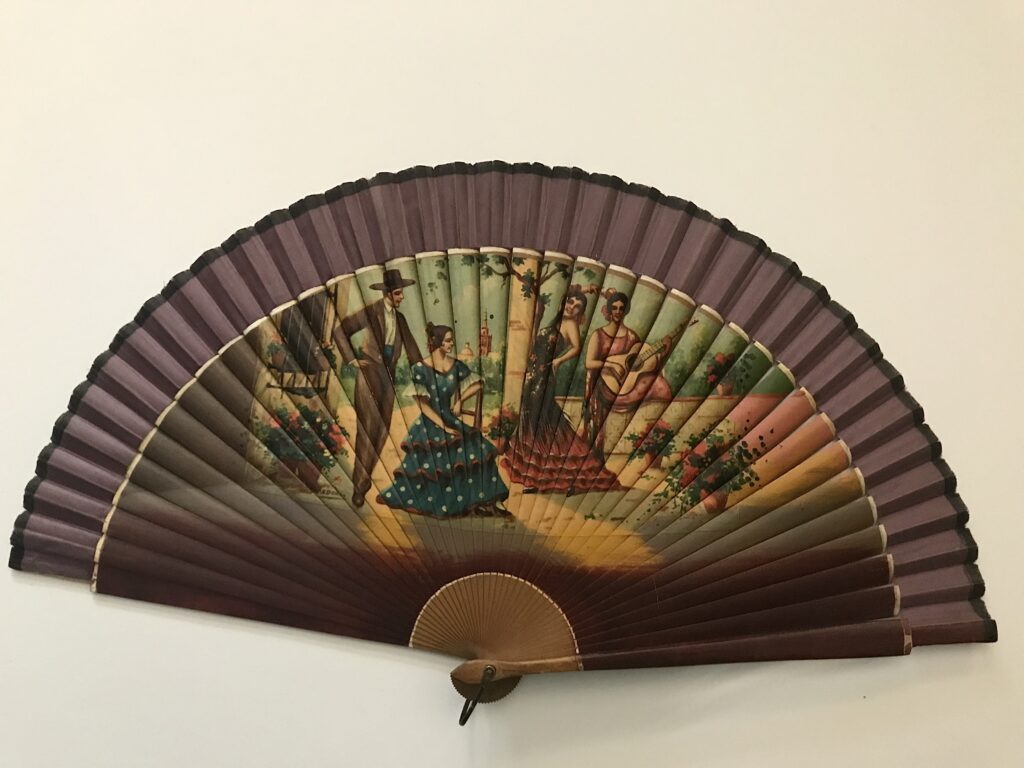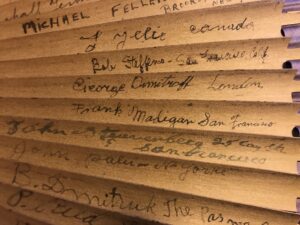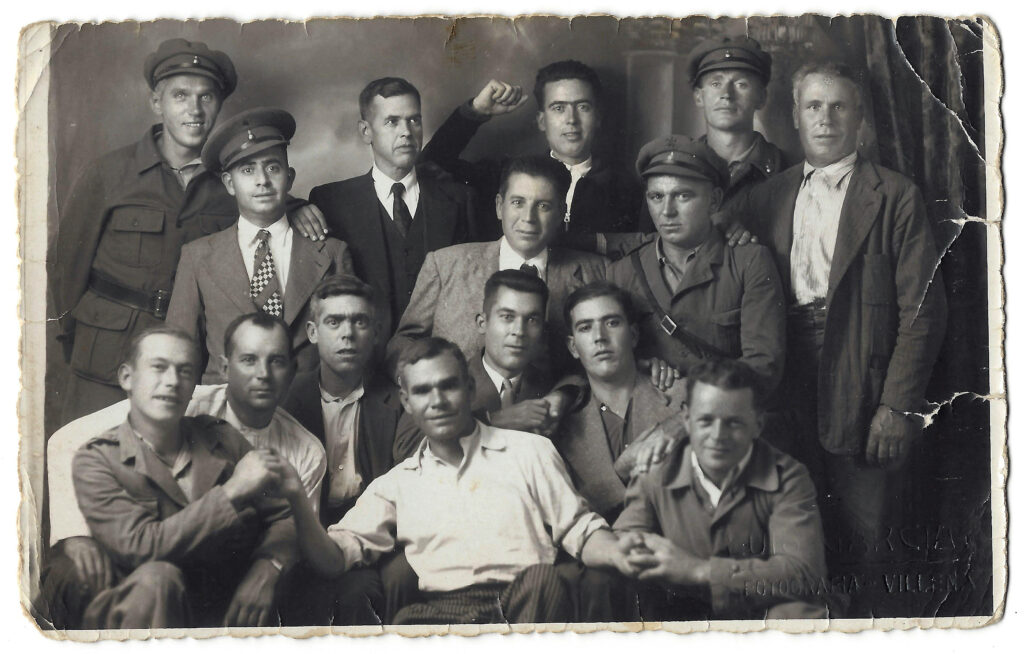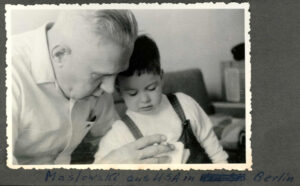From Spain to East Berlin and Arizona: A Signed Fan and a Photograph Tell Their Story
 When IB vet Hans Maslowski visited his family in East Berlin in 1969, he gave them a Spanish fan signed in 1938 by 31 fellow antifascists. More than 50 years later, his great-nephew finds out who they were.
When IB vet Hans Maslowski visited his family in East Berlin in 1969, he gave them a Spanish fan signed in 1938 by 31 fellow antifascists. More than 50 years later, his great-nephew finds out who they were.
The first chapter of the 2019 novel A Long Petal of The Sea by Isabel Allende introduces its main character, Victor Dalmau, thus: “Like almost all youths his age, Victor had joined the Republican Army in 1936 and gone off with his regiment to defend Madrid, which had been partially occupied by Franco and his Nationalist forces, as the troops who rose against the government called themselves.” The story of Victor Dalmau begins close to where the Spanish Civil War story of my great-uncle Hans Maslowski ends. Hans had emigrated to New York City from Germany in 1927 and fought against Franco in 1937-38 as a member of the International Brigades.
In 1969, Hans and his wife Anna (my grandfather’s sister) visited my parents and me in East Berlin, coming directly from the United States, and handed over a Spanish fan (abanico), signed by 31 members of the International Brigades, his International Brigade identity card, and two black-and-white photographs. These objects were kept in a box for years, until they resurfaced in early 2020.
 In March 2020, now living in Phoenix, Arizona, I approached the Martin-Springer Institute at Northern Arizona University and asked Björn Krondorfer, its director, whether students might be interested in reconstructing the stories behind the men who had signed the fan to unveil the possible connections between the fan and the photographs. Krondorfer contacted Ana Varela-Lago, a professor at Northern Arizona University who taught courses on modern European history. Together, they mentored and facilitated a two-year public history research project, which is documented at spanishcivilwarfan.org.
In March 2020, now living in Phoenix, Arizona, I approached the Martin-Springer Institute at Northern Arizona University and asked Björn Krondorfer, its director, whether students might be interested in reconstructing the stories behind the men who had signed the fan to unveil the possible connections between the fan and the photographs. Krondorfer contacted Ana Varela-Lago, a professor at Northern Arizona University who taught courses on modern European history. Together, they mentored and facilitated a two-year public history research project, which is documented at spanishcivilwarfan.org.
The project focused on the 31 men who signed the fan. While many were very young, some, like Hans, were almost forty. The fan was signed in Levante in the fall of 1938, when the International Brigades were being dismantled and the volunteers were awaiting repatriation. The project reconstructs the lives of the sixteen American volunteers who signed the fan along with the life of Hans, the fan’s owner, who did not sign it.
The research project also traces the origin of the one of the photographs I inherited, which shows Hans with a group of men and fellow brigadistas. A seal on the print indicates that it was taken and printed as a postcard in the relative tranquility of a studio owned by the photographer Luis García in the Spanish town of Villena (Alicante). Further research, including a study trip to Villena by Ana Varela in the summer of 2022, uncovered the names of several men who posed for the photo over 85 years ago.
Since I rediscovered the fan and the photographs, I wondered what motivated my great-uncle and his fellow brigadistas to leave their homes and risk their lives to defend a republic in a country many of them barely knew. The project has offered some answers. Like other European immigrants in the group, Hans had been among the first to leave for Spain when he boarded the SS Paris on February 6, 1937. But because he was not yet a citizen of the United States, his return was delayed. After crossing the border into France, he was detained in the French camp of St. Cyprien. Eventually he was allowed to leave and boarded the SS Roosevelt reaching New York on March 25, 1939. Like Hans, thousands of Spaniards were forced into French concentration camps. But while he returned home, they faced years of exile in a new country, like Allende’s protagonist, Victor Dalmau, who began a new life in Chile.
I would like to express my gratitude to the Martin-Springer Institute and its director Björn Krondorfer, the historian Ana Varela, and the students who contributed to bringing to light the forgotten lives of these idealistic men who went to Spain to fight against fascism. While the project has focused on the American volunteers, the Martin-Springer institute is now seeking university partners in Canada and the UK to research the stories of the remaining British and Canadian volunteers.
Born in East-Germany in 1963, Bernd Häber emigrated to the United States in 1996. His edition of the diary of his grandfather, Fritz Häber, who spent 16 months in an American POW Camp, is due out in early 2024. He lives in Phoenix, AZ. For more information on the fan project see the following links:
- https://spanishcivilwarfan.org/
- https://international-brigades.org.uk/wp-content/uploads/2022/07/NP3-2021.pdf
- https://international-brigades.org.uk/wp-content/uploads/2022/11/np-2-2022.pdf
- https://www.portada.info/una-fotografia-realizada-en-villena-objeto-de-estudio-de-un-proyecto-de-investigacion-en-estados-unidos














